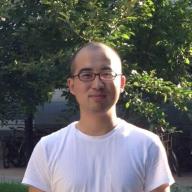I haven’t updated my public account articles in the past few months because, starting in May, I had the opportunity to switch to development due to project needs. I cherish this opportunity and have been working hard to learn development-related skills.
Why did I switch to development after 9 years of testing?
Three years ago, I planted the seed of becoming a developer. Years of writing automated test cases made me realize I enjoyed coding. I wanted to delve deeper into technology, and development was the most direct path. So I consistently worked on reading and writing more code, preparing for the day I could become a development test engineer or a developer.
I was also inspired by a recent article by Ru Bingcheng, “Why I switched from development to testing and stuck with it for 16 years.” Our career paths are the opposite, but we both strive for better professional development. He mentioned many future possibilities for testers in his video (check it out if you’re unfamiliar; it broadens your perspective). I believe strong coding skills are fundamental for any engineering role. Testing isn’t just about meticulous clicking; it’s not a job better suited for women; it’s not easier than development; and it’s not a path to complacency. Successful testing requires more effort than it appears.
Since I’m learning C, a language I haven’t touched since graduation, these past few months have highlighted the vast unknown in development. Learning a development language requires in-depth study, unlike learning automated testing. With automated testing, you can learn scripting languages on the fly. C is different; it demands systematic learning, mastering arrays, pointers, structures, linked lists, binary trees, data structures, and algorithms, operating systems, and compiler principles.
Although I’ve switched to development, I will continue to focus on testing.
I hope this role change allows me to view product quality, testing-related thinking, and technology from a more comprehensive perspective, and share more valuable content.

